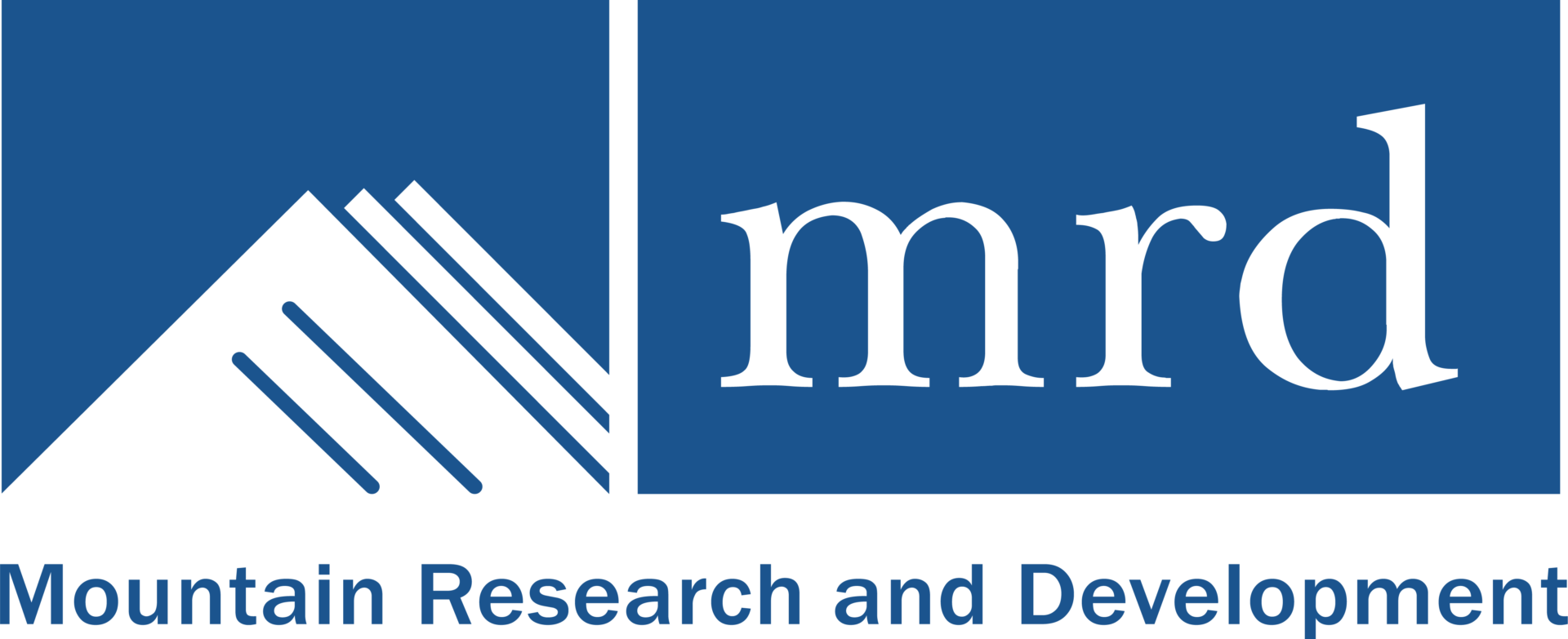MRD

As the leading international peer-reviewed journal dedicated to mountain regions, Mountain Research and Development (MRD) envisions sustainable and resilient futures for mountain societies and mountain environments worldwide, supported by highest-quality knowledge, innovative ideas, impactful dialogue between science, practice, and policy, and a strong community of dedicated people.
MRD advances transformative knowledge for sustainable development in mountains and interconnected lowlands. It publishes high-quality articles on disciplinary, interdisciplinary, and transdisciplinary research and practice-based insights. It fosters dialogue within science, as well as between science, policy, and practice. It supports development of scientific and communicative capacities. MRD fulfils its mission through strong engagement with individuals, organizations, and networks within and beyond the mountain research and development community.


